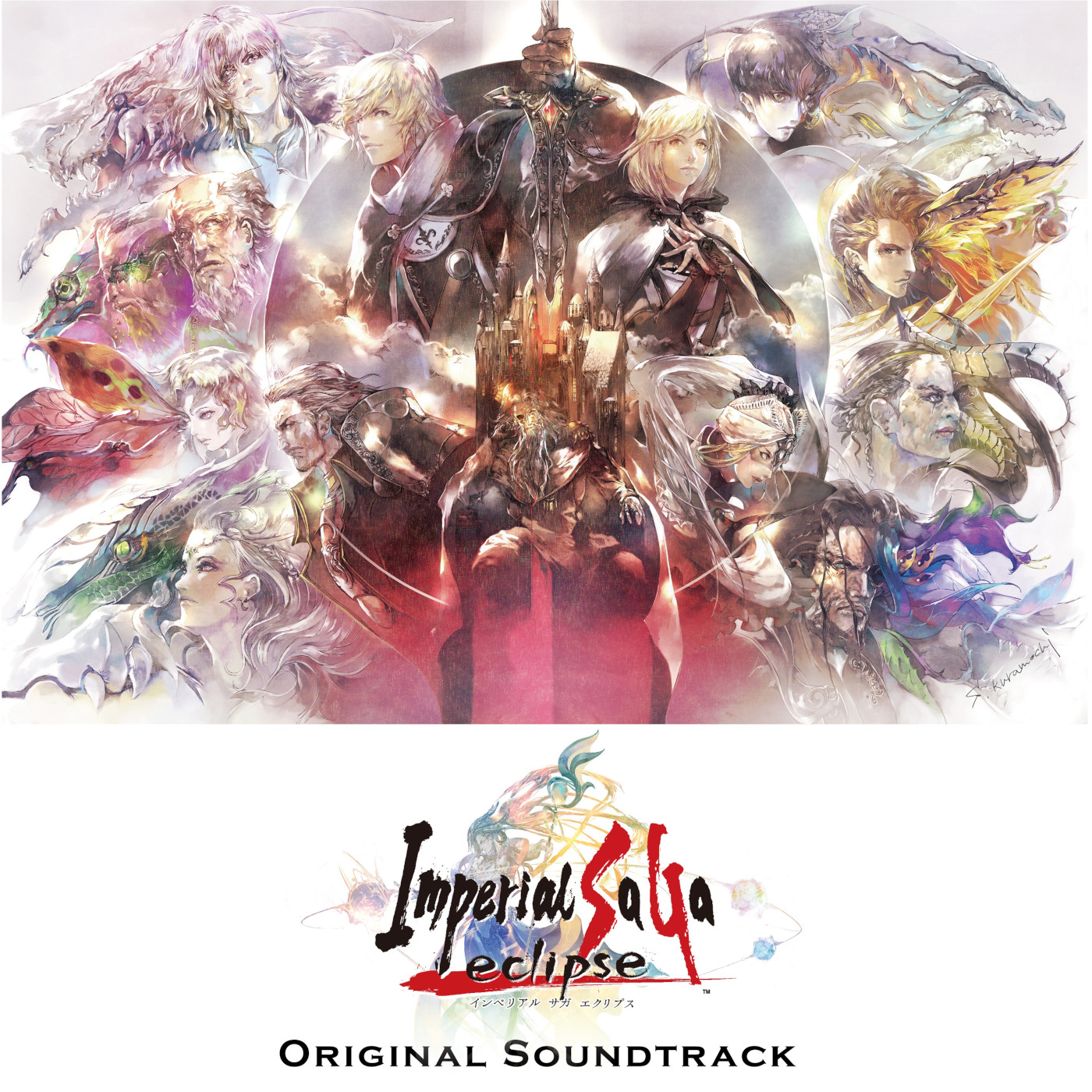After taking a deep dive into Romancing SaGa Re;univerSe Original Soundtrack vol.2, I decided to check out the soundtrack for Imperial SaGa eclipse. What is this title, you ask? It’s Square Enix’s other live service game in the SaGa franchise that, remarkably, is still running well after its 2015 launch (though it remains a Japan exclusive). The eclipse portion demarcates new content and upgraded features for Imperial SaGa, which runs as a web-based game as opposed to Re;univerSe being a mobile title. So what do they have in common besides being SaGa games? They both feature original compositions from series composer and master of melodies Kenji Ito!
Unfortunately, after listening to this digital-only, Japan-only soundtrack, I am left with two primary feelings: anger and confusion. Neither of these feelings are direct reflections on the quality of the music; rather, they act as reminders that I simply cannot have what I want.
My anger is simple enough: I will never play Imperial SaGa in its base form or its eclipse upgrade. The original title, with original characters and a story that doesn’t rely on past titles, has zero chance of being localized. Listening to great music for a game I cannot easily access, let alone understand, is always frustrating. At least with the first Imperial SaGa Original Soundtrack, I had a physical copy of the two CD set to peruse artwork and get a general sense of the game. While Imperial SaGa eclipse is a digital-only release, you need access to Japan-only services (such as an iTunes or Amazon account linked to a Japanese billing address) to grab it. All of this heightens my frustration. Am I entitled to any of it? Of course not. Do I remain angry nonetheless? Yes, yes, I do.
The confusion, however, comes from an entirely different dilemma. You see, in the album’s (sparse) credits, the composer for the entire 28-track album is solely Kenji Ito. Yet, there are arrangement credits. Every single track on Imperial SaGa eclipse cites an arranger (none of whom are Ito). And these songs aren’t being pulled from other sources, not even from the first Imperial SaGa. So, we have new compositions, but they’ve all been enhanced via arrangement by other individuals prior to publication. This leaves me with one big question: where is the source material? Or, the more accurate question, was there ever clearly-produced source material to begin with? For any given song, how much of this is Ito’s handiwork, and how much of it is Kamikura, Narita, et al.?
This confusion could be resolved with decent liner notes. But unfortunately, this digital-only release did not come with a digital booklet. And, even if it had, it likely would not have had the convenient English translation we’ve seen with so many physical CD and Blu-ray releases from Square Enix Music in the past five years.
Anger and confusion aside… this is a strong soundtrack. It’s every bit as strong as Re;univerSe vol.2, though for different reasons. A few goofy novelty tracks are hard to appreciate outside the context of the game, most notably “Catwalk Jester.” Much of this soundtrack features fantastic battle themes, the kind that put Kenji Ito on the map in the ’90s. The standard battle theme “Melee Leader” and the epic “Confront the Fate!” are every bit as intense and as memorable as Ito’s “Four Sinistrals” battle themes from Romancing SaGa 3 or his more recent combat compositions in SaGa Scarlet Grace.
I wouldn’t write off the event/environment tracks, either. “Pulse of the New World” is definitely the stand-out composition here, and all three of its forms on the OST are great to listen to. Finally, near the end of the soundtrack, we find “To the Land Where Distant Thoughts Reach,” a lofty title to match a lofty piece of robust orchestral music.
In summary: Imperial SaGa eclipse features great music for a game most of us cannot access with convoluted credit and attribution, making it difficult to know how or why the music is of such high quality. This reviewer recognizes that he and we cannot have it all. So, perhaps, it’s best to be grateful for what we do have: another solid soundtrack from Kenji Ito and friends.




